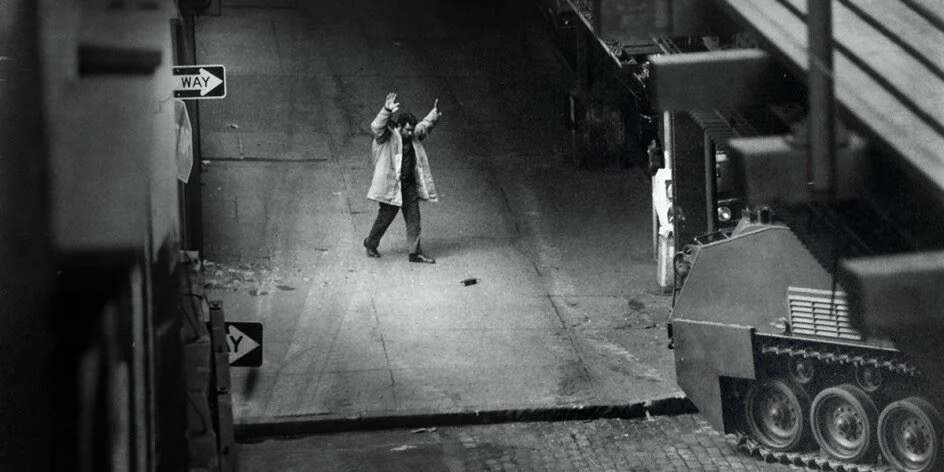Chicago Critics Film Festival 2022: Hold Your Fire
The documentary “Hold Your Fire” dives right into the complexities of another allegedly simple, forgotten event that unspools into a web of complexities. That it not only reflects our current anxieties is a given, but it also has quite a bit to say about where they came from in the first place. And what director Stefan Forbes manages to achieve is a documentarian’s dream state, bolstered by a staggering access to a number of New York characters who were directly involved in a nightmare.
In 1973 Brooklyn, a time and place renowned for its gritty volatility, four young Black men stepped right into the bubbling mess and inadvertently exploded it when they attempted to steal guns from a sporting goods store. When the police were alerted, everyone, from the gunmen to the now hostages also trapped inside, found themselves in a nightmarish siege with police who were more concerned with killing those they viewed as cartoonishly evil bad guys than saving civilians caught in the middle.
But an eventual silver lining emerged from the horror that was to follow - the birthplace of hostage negotiation, a component of police work we now take for granted. As Forbes puts it, before this event, hostage situations tended to be disastrous free-for-alls, with cops embracing a storm and shoot mentality with little concern for rescuing hostages, and the casualties to show for it. If it seems unthinkable, or at the very least, exaggerated, Forbes is of the sit back and wait mentality. As in, sit back and wait for his subjects to verbally hang themselves.
And the police are the ones who do so, almost unanimously. The now elderly would-be gunmen, and their former leader Shu'aib Abdur-Raheem, are the ones who are the most regretful of their actions and the bloody results, which included a dead police officer and a permanently traumatized hostage who left behind a daughter still grappling with the ramifications of her mother’s trauma. It is the police who mostly insist on their lack of racism, only to quickly spout racist statements, and a disdain for any approach that involved talking to “criminals” rather than killing them.
What is really at the heart of “Hold Your Fire” is a struggle for the soul of America and the attempted redemption of it. Even the most racist of the talking heads acknowledge the trauma and pain of the toxic masculinity they wholeheartedly support, which often resulted in PTSD and suicide in their fellow police officers. Forbes also chronicles the men who were the exceptions to the rule and embraced empathy, from the store owner who gave up his own chance to escape and found a way for the hostages to make it out alive, to Benjamin Ward, a Black cop who approached the store unarmed, and especially, police psychologist Harvey Schlossberg, who pioneered hostage negotiation during this scenario and went on to train others in his methods.
Forbes manages to convey so much so damn well that the fact that “Hold Your Fire” isn’t a miniseries feels like a colossal shame. A longer runtime wouldn’t just be beneficial for informational purposes; it would allow his far longer history as a cinematographer to shine even brighter. As it is, Forbes conveys the mood of a city that goes far beyond the stereotype of a crime-infested, bankrupt cesspool that even the films of the time embraced with gusto.
In a time when white supremacists are increasingly and openly taking up arms, everything depends on just how masculinity will change…or not. But as “Hold Your Fire” so immersively tells us, people and systems can change. Hostage negotiation is now an integral part of police work, and Shu'aib Abdur-Raheem has become a major figure in the Restorative Justice Movement. The real question is whether we’ll learn anything from such voices in time.
Grade: A+




